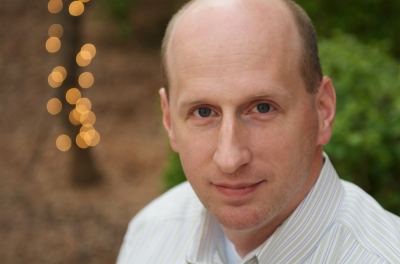Academic Freedom Under Fire In Kansas: Will the AAUP Be Consistent?

When it comes to threatening core liberty interests, activists can be nothing if not industrious — sometimes using even well intentioned laws as sledgehammers against disfavored views and disfavored speakers.
Witness the emerging use of state open-records laws to harass dissenting professors. The tactics are simple: Take advantage of the fact that most major research universities are public institutions to engage in wide-ranging fishing expeditions of individual scholars' e-mail accounts and other records — including of personal e-mails — in the hopes of finding something, anything to shame or embarrass the scholar into silence. The threat to academic freedom is obvious: Scholars often engage colleagues, interested members of the public, and others to test ideas and theories before they're ready for prime time, and the thought that every written thought can now be splashed across the Internet will lead to timidity and self-censorship. High-quality research depends on a freewheeling exchange of ideas. Compelled disclosure of all communications will inevitably suppress academic discourse.
This is particularly true for minority viewpoints on campus. Or for those engaged in controversial speech. If you think conservative professors have enough challenges on campus, imagine a world where they navigate the minefield of hiring committees only to enter a world where their every email — no matter how tenuously it relates to their work as a "public official" — is read by a gang of hostile, angry third parties who are ready to twist every utterance to shame and humiliate them. How many people would want to work in that environment? How many people would find that environment conducive to scholarship and research?
Activists on the left and right have both wielded open-records laws as a weapon, with conservative activists seeking a broad range of communications from Michael Mann at the University of Virginia and Wisconsin Republicans asking for records from liberal professor William J. Cronon at the University of Wisconsin. On the other side, LGBTQ activists pursued the University of Virginia's Douglas Laycock because of his support for religious liberty, while at the University of Kansas Professor Art Hall was forced to file suit last week to prevent the university from releasing hundreds of pages of e-mails and other documents related to several professors' and departments' connections to various organizations accused (often incorrectly) of being associated with Charles Koch and David Koch, shareholders of Koch Industries, Inc.
Oddly enough, the Kansas open-records request was backed by the Kansas conference of the American Association of University Professors (AAUP), with its president, Ron Barrett-Gonzalez, declaring in a brief rant to the Lawrence Journal-World that "This issue is NOT about academic freedom, rather accountability and scholarly integrity."
I say "oddly enough," because I'd like to introduce the president of the Kansas conference of the AAUP . . . to the AAUP. It turns out that the national organization — institutionally and through its president — has spoken out clearly, properly, and unequivocally about the abuse of open-records requests to harass professors. In the Michael Mann controversy, the AAUP joined a letter – along with a host of scientific and academic organizations — urging that the University of Virginia protect academic freedom. The AAUP's president, Carey Nelson, rightly said, "If scientists think every e-mail they send may be subject to a politically motivated attack, it will create a chilling effect on their discourse and hurt scientific research." Responding the University of Wisconsin controversy, the AAUP wrote a letter calling the records request "outrageous."
And if that weren't evidence enough that the Kansas chapter — which cannot speak authoritatively on matters of academic freedom for the AAUP nationally (it speaks more authoritatively through its national president, its Department of Academic Freedom, Tenure and Governance, and its "Committee A" on Academic Freedom and Tenure) — is defying its own parent organization, consider the AAUP's own report, "Academic Freedom and Electronic Communications." Its concerns are clear (italics in original):
Efforts to protect privacy in electronic communications are an important instrument for ensuring professional autonomy and breathing space for freedom in the classroom and for the freedom to inquire. Although privacy is framed as an individual right, group or associational privacy is also important to academic freedom and to ensuring a culture of trust at an institution.
Academic freedom should not be a partisan issue. Indeed, conservative scholars–as decided minorities on campus–should understand this better than anyone. If academic freedom becomes thoroughly partisan, they will lose.
Throughout my career, I've advised hundreds of individuals and academic institutions — left, right, and center — on academic-freedom issues (I'm providing pro bono legal counsel to the Charles Koch Foundation) and have been pleased at the number of left-leaning organizations that have understood the vital importance of academic freedom. I've partnered with the AAUP to defend academic freedom for professors, and I've welcomed the assistance of academic freedom committees (comprised largely of left-leaning professors) at many universities. But now, once again, what should be a bipartisan commitment to freedom is under fire. Will the AAUP and other national academic organizations defend academic freedom at Kansas with the same zeal they defended it at UVA and Wisconsin?
Time will tell. If they do not — if they take a thoroughly ideological position of "academic freedom for me, but not for thee" — they will doubtless see this issue arise again. In the meantime, we will all lose as the academy and culture become even more hostile to free speech and open inquiry.





















